It’s no secret—by far the most requested subject for tutoring is math. This is true at all grade levels, but especially in the upper grades. Why is this? Is math just that much more difficult than all the other subjects?
The state of math education in the United States
Education in the United States is not standardized across the country. Each state has its own standards and requirements, and each school district within the state sets its own curriculum. Dr. Jo Boaler is the Nomellini-Olivier Professor of Mathematics Education at the Stanford Graduate School of Education. She is a passionate promoter of mathematics reform, and she says that math is the subject “with the most damaging ideas held by teachers, students, and parents.” According to Dr. Boaler, students decide early on if they are a “math person” or they’re not. And this designation lasts into adulthood.
Since US students rank lower in math scores than the global average, there has been a lot of attention paid to how math is taught here. Students in most Asian countries, along with Russia, Ireland, England, the UAE, Latvia, Norway, Lithuania, Austria, and the Netherlands all rank higher on the TIMSS mathematics scale.
Some feel, along with Dr. Boaler, that the two main reasons for this are 1) we lack consensus on the goals of K-12 math education, and 2) we lack consensus on how to define and measure success of math education.
What are schools doing about it?
According to Dr. Heather Hill, Jerome T. Murphy Professor in Education at Harvard Graduate School of Education, “Efforts to improve K-8 mathematics instruction have been a consistent feature of the education policy landscape for the past three decades, from the revised state mathematics standards of the 1990s to the Common Core educational standards enacted in 2010.” For the past three years, Dr. Hill, along with some of her colleagues, has been collecting evidence on U.S. mathematics instruction.
They have found that teachers’ mathematical knowledge has improved over time, and more teachers (19%) are using standards-aligned curriculum materials. However these findings represent what she calls “modest” gains. The vast majority of teachers are not using standards-aligned curriculum materials, and there are many reasons for that, including weak incentives. It took a while to get math education into its current condition, and it will take a while to get us out of it.
Since Common Core was first adopted in 2010, there were 46 states which eventually adopted the standards in their schools. However since then, 16 states have either withdrawn from the curriculum or are in the process of withdrawing, and 4 states never adopted it. “There is no evidence that the standards had a significant, positive impact on student achievement” according to Tom Loveless, former Brookings Expert and author of the recently released Between the State and the Schoolhouse: Understanding the Failure of Common Core.
What can parents do?
Parents who have tried to help their students in math have been frustrated by the generation gap in how math is taught. No longer able to rely on “how we used to do it”, parents are finding that even elementary level math is unfamiliar and somewhat daunting. Hence, math has become the most requested subject for tutoring.
One-on-one tutoring with a certified classroom teacher who is familiar with how math is taught in your state can have the greatest impact on your child’s success in math. In a classroom environment, the teacher has very little time to work individually with any student, and kids are often reluctant to ask for help because they don’t want to risk looking “stupid” in front of their peers.
Some tutoring companies use college students or subject-matter-experts who are good in math to do their math tutoring. The weakness in this approach is that these tutors are not trained educators. It’s one thing to be great at a certain subject but it’s another thing altogether to be able to evaluate, assess, educate, and adapt in order to help a struggling student improve.
That’s why all of the tutors at TutorUp are certified, experienced, background-checked classroom teachers who only work one-on-one with students to provide the personalized support your child needs to be successful. If your child is one of the many who could use some personalized time with a teacher to help them improve in math, let us know. We can help.

